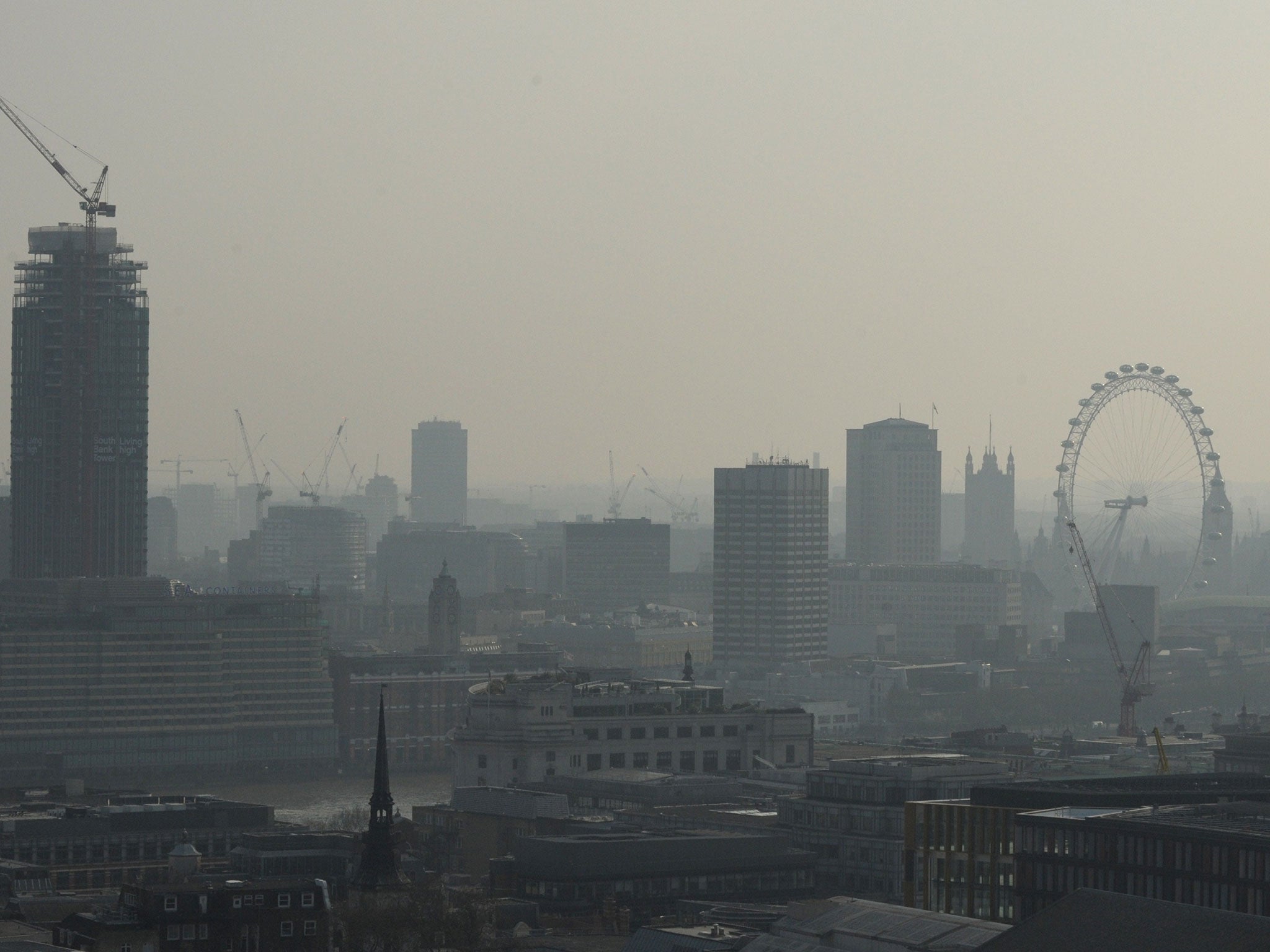Free public transport in London is the only way to save our environment
While short-term measures alert Londoners to air pollution that is already high, our car-centric culture needs to be challenged to permanently tackle air pollution


Your support helps us to tell the story
From reproductive rights to climate change to Big Tech, The Independent is on the ground when the story is developing. Whether it's investigating the financials of Elon Musk's pro-Trump PAC or producing our latest documentary, 'The A Word', which shines a light on the American women fighting for reproductive rights, we know how important it is to parse out the facts from the messaging.
At such a critical moment in US history, we need reporters on the ground. Your donation allows us to keep sending journalists to speak to both sides of the story.
The Independent is trusted by Americans across the entire political spectrum. And unlike many other quality news outlets, we choose not to lock Americans out of our reporting and analysis with paywalls. We believe quality journalism should be available to everyone, paid for by those who can afford it.
Your support makes all the difference.Paris has a long-standing reputation as the home of free thinkers and this week the city took the inspired step of making its public transport free of charge during a desperately high spike in air pollution.
In London, our own pollution spike recently led to warnings to keep babies away from traffic-heavy roads and to avoid strenuous exercise. Joggers and vulnerable people are choking in London’s dirty air, which also worsens heart and lung conditions and can cause asthma.
With London also blanketed by a thick layer of brown air mainly caused by cars, vans and lorries, free public transport is one solution.
The Mayor of London, Sadiq Khan, has already taken some short-term measures to tackle pollution, such as erecting signs advising people not to drive and to walk, cycle or take public transport instead. He also deployed signs telling drivers stopped at traffic lights to switch off their engines to protect the health of drivers in vehicles behind them. It is an often overlooked fact that air pollution exposure is often higher inside cars than it is out on the streets.
While short-term measures alert Londoners to air pollution that is already high, our car-centric culture needs to be challenged to permanently tackle air pollution, not just deal with it on 'spike’ days.
The Mayor is introducing an Ultra Low Emission Zone in London to make the most polluting vehicles pay a charge to drive in the zone. This is good as far as it goes – but once people pay their daily charge there is no encouragement to keep journeys short. In fact, quite the reverse: people may drive as much as possible to get better value from the charge they have just paid.
Obviously the most effective way to cut pollution is by slashing the number of car trips made every day. Pollution is measured in grams per kilometre, so cutting the distances driven will cut emissions whatever the vehicle.
So there is a good case for making all public transport free, or at least very affordable, to encourage people to ditch their cars and get about town in the most sustainable way possible.
When public transport is free or very cheap, there is a clear financial incentive to taking the bus or tube rather than running a car. If the Mayor was to follow Paris and make public transport free – even as a stunt during particularly high spikes – the potential health benefits of getting Londoners out of cars and onto buses, trams and tubes, or onto their two feet, would the lost revenue. Roads could still pay their way even with public transport passengers travelling for free under a road pricing scheme, but this idea has beeing laying in the long grass since 1999.
The Rocol (Road Charging Options for London) report suggests charging by time of day, road driven on, distance travelled and the emissions of the vehicle being driven to manage demand for road space and keep on top of pollution and congestion. So it would be very expensive to drive a polluting car in central London at rush hour whereas in the middle of the night in outer London with few public transport options it would be much cheaper. The Federation of Small Businesses, London First, the Royal Town Planning Institute, the Institute of Civil Engineers and the Royal Academy of Engineering all support a system of road charging, but no Mayor has yet had the guts to act on this despite a healthy list of eminent supporters.
Until we take some serious action on transport choice, whether you think they are gimmicks or not, London will see more pollution spikes and the worsening health of the people who live there.
Caroline Russell is a Green Party member of the London Assembly
Join our commenting forum
Join thought-provoking conversations, follow other Independent readers and see their replies
Comments